Optimizing Pollination Techniques for Cannabis Breeding

Effective pollination techniques for cannabis breeding are crucial for maximizing yield and potency. With the right approach, cannabis breeders can enhance genetics, produce high-quality seeds, and develop new hybrid varieties.
Advanced breeding strategies, such as controlled pollination and crossbreeding, can help achieve these goals. In this article, we will explore the basics of cannabis pollination and provide tips for maximizing pollen transfer, enhancing genetics, and overcoming common challenges.
Key Takeaways
- Effective pollination techniques are crucial for maximizing yield and potency in cannabis breeding.
- Advanced breeding strategies, such as controlled pollination and crossbreeding, can enhance genetics and develop new hybrid varieties.
- Optimizing pollen transfer, selecting compatible strains, and managing plant health are important factors for successful cannabis pollination.
- Working with a trusted seed bank to acquire reliable genetics can also improve cannabis breeding results.
- The future of cannabis breeding holds exciting possibilities for innovative breeding approaches and advancements in technology.
Understanding the Basics of Cannabis Pollination
Effective cannabis pollination methods are essential for successful breeding. To understand how to optimize your pollination techniques, it’s important to start with the basics of cannabis pollination.
Cannabis is a dioecious plant, meaning it has separate male and female plants. The male plants produce pollen, while the female plants produce pistils that receive the pollen and produce seeds.
The process of pollen transfer can occur through various means, including wind, insects, and human intervention. However, to ensure successful pollination, it’s important to select the right breeding partners and manage pollen production.
| Factors Affecting Pollination Success: | Best Practices for Pollination Success: |
|---|---|
|
|
By understanding the basics of cannabis pollination and implementing best practices for pollination success, breeders can maximize their yields and produce high-quality seeds. In the next section, we’ll explore the best techniques for maximizing pollen transfer and improving seed production.

Maximizing Pollen Transfer for Improved Seed Production
Efficient pollen transfer is crucial for successful cannabis breeding. It ensures the production of high-quality seeds with desirable traits. Here are some techniques to maximize pollen transfer and improve seed production:
- Use pollination bags: These bags prevent pollen from escaping and protect flowers from unwanted pollination. Pollination bags can also be used to select specific branches or buds for pollination.
- Hand pollination: This method involves manually transferring pollen from the male to the female flower. It allows for precise control over the pollination process, ensuring successful fertilization.
- Controlled pollination: This approach involves selecting the breeding partners and timing the pollination carefully to avoid unwanted cross-pollination. It ensures the preservation of desired traits and genetics.
Maximizing pollen transfer can also be achieved through proper plant care. Healthy and vigorous plants produce more and better quality pollen. Additionally, environmental factors such as temperature, humidity, and light can also impact pollen production and viability.
Enhancing Cannabis Genetics Through Crossbreeding
Crossbreeding is a popular approach used by cannabis breeders to enhance the genetics of their strains. It involves controlled pollination between two different cannabis plants to introduce new traits and characteristics to the offspring. The process can lead to the development of unique and desirable hybrid varieties.
But how do you ensure successful crossbreeding of cannabis plants?
Firstly, it is important to select compatible strains for breeding. Strains with similar genetics are more likely to produce viable offspring. When selecting parent plants, pay close attention to their phenotype and traits, such as growth patterns, flower structure, and aroma.
Secondly, it is essential to manage the crossbreeding process carefully. Breeders need to control pollination, ensuring that only the desired varieties are used as parent plants. This can be achieved through techniques such as hand pollination or the use of pollination bags.
| Tip: | Always label your parent plants and keep detailed records of the crossbreeding process to track the offspring’s genetics and traits. |
|---|
Lastly, it is important to be patient. Crossbreeding can be a time-consuming process, and it may take multiple generations to achieve the desired results. Breeders need to carefully select and breed the offspring with the desired traits to increase their chances of success in creating a new hybrid.
Examples of Successful Cannabis Crossbreeding
One example of successful crossbreeding in cannabis is the development of the popular strain, Girl Scout Cookies. The cultivar is a hybrid of F1 Durban and OG Kush, resulting in a unique combination of physical and mental effects.
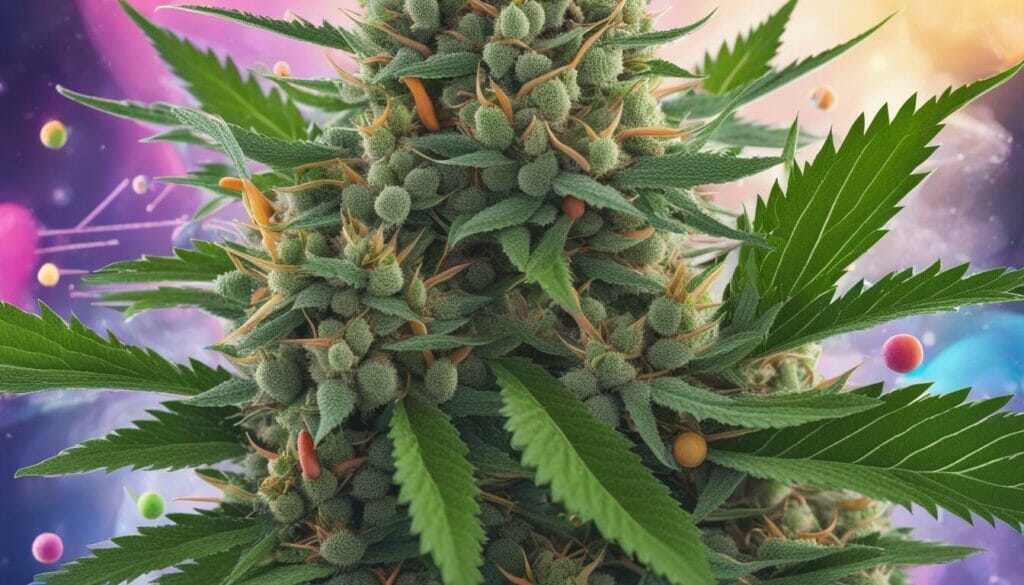
Another successful example is the strain, Blue Dream, which is a cross between Blueberry and Haze. The hybrid has become one of the most popular and recognizable strains worldwide due to its sweet flavor and cerebral effects.
Crossbreeding is becoming more popular in the cannabis industry as breeders aim to develop new and unique hybrid strains. It is important to understand the techniques and strategies involved in successful crossbreeding to achieve the desired results.
Best Practices for Successful Cannabis Pollination
Successful cannabis breeding heavily relies on optimizing pollination techniques. Here are some best practices to maximize pollination success:
- Timing is crucial. Pollination should occur when the female plant is receptive and the male plant is producing pollen. This ensures the highest chances of successful pollination.
- Avoid high humidity levels and excess moisture, as this can lead to mold and fungal growth. Proper ventilation and air circulation are important to maintain optimal conditions.
- Ensure plant health through proper nutrient management and pest control. Healthy plants may help to produce more vigorous offspring.
- Choose the right breeding partners. Select strains with desirable traits and genetic compatibility to increase the chances of producing high-quality offspring.
- Control pollination to avoid unwanted cross-pollination. Using pollination bags, hand pollination, or other techniques can help prevent pollen from spreading to undesired plants.
- Proper spacing is important to avoid overcrowding. This allows for optimal air circulation and reduces the risk of unwanted pollination.
By following these best practices, cannabis breeders can increase their chances of successful pollination and produce high-quality offspring.
Advanced Methods for Cannabis Breeding
Successful cannabis breeding isn’t just about selecting the right parent plants. Advanced techniques like backcrossing, selective breeding, and trait selection can be used to develop unique and desirable hybrid varieties with enhanced genetics.
Backcrossing involves crossing a hybrid plant with one of its parents to reinforce a desirable trait. This process is repeated over several generations until the desired trait is fully stabilized. This advanced strategy can result in plants with enhanced potency, yield, and disease resistance.
Selective breeding is a technique that involves choosing plants with certain traits and crossing them to create offspring with those traits. This approach can be used to develop new strains with specific properties, such as increased yield or unique flavor profiles.
Trait selection involves identifying desirable traits in plants and using genetic markers to isolate and select those specific traits. This approach can be used to introduce specific characteristics into a plant’s genetic makeup, such as resistance to pests or diseases.

“Advanced breeding strategies such as backcrossing, selective breeding, and trait selection can be used to develop unique and desirable hybrid varieties with enhanced genetics.”
By using these advanced breeding methods, growers can create new and unique cannabis varieties that offer enhanced potency, yield, and disease resistance. However, it’s important to remember that these techniques require a great deal of expertise and patience.
The Role of Seed Banks in Cannabis Breeding
One of the crucial factors in successful cannabis breeding is sourcing high-quality seeds. Working with a reputable seed bank ensures that breeders have access to a diverse selection of top-quality cannabis seeds. Seed suppliers such as SeedsHereNow.com are dedicated to providing premium cannabis genetics that meet the unique needs of growers and breeders.
At SeedsHereNow.com, we take pride in offering an extensive selection of cannabis seeds from the world’s most renowned breeders. Every seed is hand-selected and rigorously tested to ensure optimal germination rates, potency, and yield. Our team of experts is always available to provide guidance and support to help our clients achieve their breeding goals.
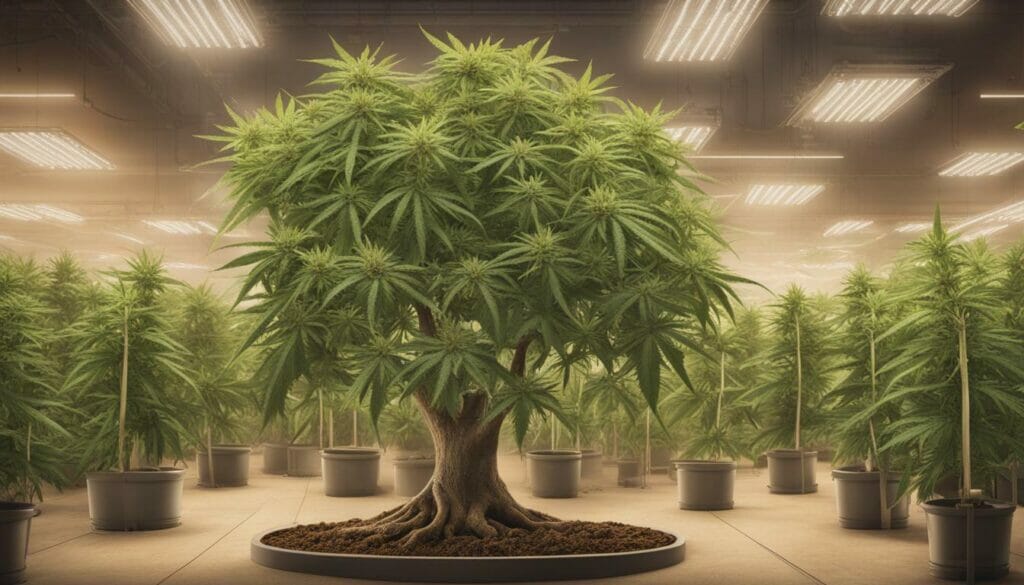
With years of experience in the industry, SeedsHereNow.com has built a reputation for excellence in cannabis genetics. We are committed to providing our clients with the most reliable and effective seeds available. Whether you’re a beginner breeder or an experienced grower, we have the seeds you need to take your cannabis breeding to the next level.
Factors Affecting Cannabis Hybridization Success
Successful hybridization is critical for achieving desired genetic traits and creating new cannabis varieties. However, several factors can affect the success of hybridization, including:
- Genetic compatibility: It is essential to select strains that are genetically compatible and have similar characteristics to increase the chances of successful hybridization.
- Pollen viability: The quality and viability of pollen can significantly impact the success of hybridization. Breeders should ensure that pollen is harvested at the right time and stored correctly to maintain its viability.
- Plant health: Hybridization success is also dependent on the overall health and vitality of the plants. Breeders should ensure that the plants are healthy and free from pests and diseases.
- Environmental factors: Environmental factors such as temperature, humidity, and light can all impact hybridization success. Breeders should maintain optimal growing conditions to improve their chances of successful hybridization.
By carefully managing these factors, breeders can increase their chances of achieving successful hybridization and creating new and unique cannabis varieties.
The Role of Nutrients in Cannabis Pollination
Proper nutrient management is essential for successful cannabis pollination. Providing your plants with the right balance of essential nutrients can boost plant health, increase pollen production, and enhance seed quality.
Here are some tips for maintaining proper nutrient levels:
- Use a high-quality cannabis-specific fertilizer that contains all the necessary macro and micronutrients.
- Monitor pH levels and adjust as needed to ensure optimal nutrient uptake.
- Avoid over-fertilization, as this can lead to nutrient burn and other issues.
- Consider using organic fertilizers or supplements, which can improve soil health and promote beneficial microbial activity.
Keep in mind that nutrient requirements can vary depending on the stage of growth and the specific strain you’re working with. Consulting with a cannabis cultivation expert or conducting soil tests can help you fine-tune your nutrient management approach.
“Proper nutrient management is crucial for maximizing the genetic potential of your cannabis plants. By providing the right balance of essential nutrients, you can support healthy growth and development, leading to higher yields and better quality seeds.”
Overcoming Common Challenges in Cannabis Breeding
Cannabis breeding can be a rewarding process, but it can also present challenges along the way. Here are some common difficulties that breeders face and strategies for overcoming them:
Unstable genetics: One of the most significant challenges in cannabis breeding is achieving genetic stability in hybrid strains. Breeders must carefully select for desirable traits and control pollen production to avoid unwanted cross-pollination. To increase genetic stability, backcrossing can be used to reinforce desired traits.
Low germination rates: Poor germination rates can lead to a significant loss of time and resources. To improve germination rates, breeders can use pre-soaking techniques or invest in high-quality seeds from reputable sources like SeedsHereNow.com.
Poor seed quality: Seed quality can be impacted by genetics, environmental factors, or improper storage. To safeguard seed quality, breeders should maintain proper storage conditions and avoid cross-contamination with other strains.
By understanding these common challenges and implementing appropriate strategies, cannabis breeders can increase their chances of producing successful and desirable strains.

“Cannabis breeding can be a rewarding process, but it can also present challenges along the way.”
The Future of Cannabis Breeding
The future of cannabis breeding is bright with the continued advancements in technology and techniques. One area that has great potential is marker-assisted selection, which allows breeders to identify desirable genetic traits earlier in the breeding process. This can significantly reduce the time and resources required to develop new strains.
Another promising area is the use of genetic mapping to gain a better understanding of cannabis genetics. This can help breeders to create more targeted hybridization and produce plants with specific desired traits. Additionally, genetic mapping can help identify genes associated with disease resistance, which can be used to develop more robust and resilient strains.
Advancements in cloning technology are also opening up new possibilities for cannabis breeding. Cloning allows breeders to create exact replicas of high-performing plants, ensuring consistency and quality in their breeding programs. This can be especially beneficial for producing strains with unique or rare traits.
In addition to these advancements, the future of cannabis breeding will also be shaped by the changing legal landscape. As more countries and states legalize cannabis, breeders will have greater opportunities to create and distribute new strains. This will lead to greater diversity in the cannabis market and more options for growers and consumers alike.
Overall, the future of cannabis breeding is exciting and full of potential. As breeders continue to push the boundaries of innovation, we can expect to see even more remarkable strains emerge in the years to come.
Pollination Techniques for Cannabis Breeding: Conclusion
Optimizing pollination techniques is crucial for successful cannabis breeding. By understanding the basics of pollination, maximizing pollen transfer, and enhancing genetics through crossbreeding, growers can produce high-quality cannabis strains with desirable traits.
Remember, successful cannabis breeding takes patience, dedication, and a willingness to experiment. By implementing the techniques and strategies outlined in this article, you can take your breeding endeavors to the next level and produce top-quality cannabis strains with unique and desirable characteristics.
Now that you have a better understanding of how to pollinate cannabis plants, check out the complete collection of regular, feminized, and autoflower seeds at Seeds Here Now.
FAQ
Q: What is the importance of optimizing pollination techniques for successful cannabis breeding?
A: Optimizing pollination techniques is crucial for maximizing efficiency in cannabis breeding. It allows for the enhancement of cannabis genetics, resulting in the development of desirable traits and improved seed production.
Q: What are the basics of cannabis pollination?
A: Cannabis pollination involves the transfer of pollen from male to female plants, leading to fertilization and seed production. Understanding the roles of male and female plants, pollen transfer mechanisms, and factors influencing successful pollination is essential for effective breeding.
Q: How can pollen transfer be maximized for improved seed production?
A: Techniques such as using pollination bags, hand pollination, and careful pollen management can maximize pollen transfer and enhance seed production. It is important to control pollination to prevent unwanted cross-pollination and ensure the desired genetic outcomes.
Q: How does crossbreeding contribute to enhancing cannabis genetics?
A: Crossbreeding allows for the introduction of new genetic traits and the development of unique cannabis hybrid varieties. Controlled pollination and selecting compatible strains play a crucial role in successful crossbreeding and genetic enhancement.
Q: What are the best practices for successful cannabis pollination?
A: Best practices for successful cannabis pollination include proper timing, optimal environmental conditions, and maintaining plant health. Factors such as spacing, pest management, and nutrient balance also influence pollination success.
Q: What are some advanced strategies for cannabis breeding?
A: Advanced strategies for cannabis breeding include backcrossing, selective breeding, and trait selection. These techniques allow breeders to develop desirable traits and create unique hybrid varieties with improved characteristics.
Q: What is the role of seed banks in cannabis breeding?
A: Seed banks play a crucial role in providing high-quality seeds for cannabis breeding. Working with reputable seed banks like SeedsHereNow.com ensures access to top-quality cannabis seeds, expert knowledge, and a wide selection for breeding purposes.
Q: What factors can affect cannabis hybridization success?
A: Factors such as genetic compatibility, pollen viability, and overall plant health can impact cannabis hybridization success. Understanding and managing these factors can increase the chances of successful hybridization.
Q: How does proper nutrient management affect cannabis pollination?
A: Proper nutrient management is essential for plant health and pollen production in cannabis. Balancing essential nutrients supports successful pollination by ensuring optimal plant nutrition.
Q: What are some common challenges in cannabis breeding?
A: Common challenges in cannabis breeding include unstable genetics, low germination rates, and poor seed quality. Overcoming these challenges requires proactive measures such as proper seed selection and handling, as well as careful breeding practices.
Q: What does the future hold for cannabis breeding?
A: The future of cannabis breeding holds exciting possibilities, including advancements in techniques and technologies. Emerging trends such as marker-assisted selection and genetic mapping offer new opportunities for creating improved cannabis varieties through innovative breeding approaches.
Suggested Articles
;)
;)
;)



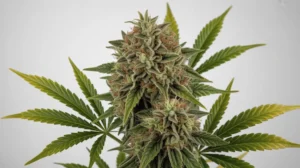
 12 Feb 2026
12 Feb 2026  6 min read
6 min read
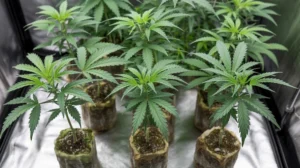
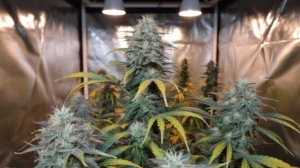
 October 18, 2023
October 18, 2023 


RESPONSES (0)
No responses yet. Be the first to respond!